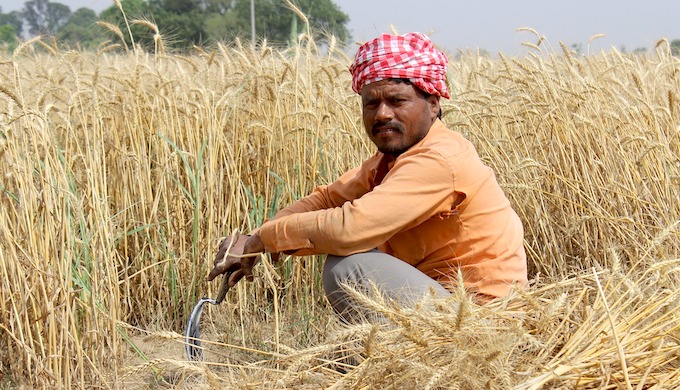Productivity loss due to heat stress in India, brought on by rapidly rising temperatures, will be equivalent to 34 million full-time jobs in another 10 years

It is becoming too hot to work outdoors in India (Photo by Jeevan Singla)
Extreme heat due to global warming will result in big losses in work productivity across the world, according to a new study by the International Labour Organisation (ILO). Tropical countries like India will be worst-hit.
The overall cost of productivity losses due to rising temperatures could be as high as USD 2.4 trillion every year, ILO said in its report titled Working on a warmer planet: The impact of heat stress on labour productivity and decent work published earlier this month.
The United Nations agency made this prediction based on the assumption that the global temperature rise will be restricted to 1.5 degrees Celsius by the end of this century. The 2015 Paris Agreement on climate change aims to keep the rise in global temperatures to “well below” 2 degrees Celsius and pursue efforts to limit the temperature increase “even further” to 1.5 degrees.
The 1.5 degree target is unlikely to be met, and thus the ILO number is likely to be a serious underestimation. The physical signs and socioeconomic impacts of climate change are hastening, as record greenhouse gas concentrations drive global temperatures towards increasingly dangerous levels, the World Meteorological Organization said in its Statement on the State of the Global Climate in 2018. The world is nearly 1 degree Celsius warmer since the industrial age began, it said. See: Extreme weather pummels 62 million people
Serious consequence
The ILO report says that the world’s poorest countries will be worst affected from productivity losses due to heat stress and, by 2030, the lost output would be equivalent to 80 million full-time jobs, or 2.2% of total working hours worldwide. “The impact of heat stress on labour productivity is a serious consequence of climate change,” said Catherine Saget, chief of ILO’s Research department and an author of the report.
The phenomenon of heat stress refers to heat received in excess of that which the body can tolerate without physiological impairment. Temperatures exceeding 39 degrees Celsius can kill, but even where there are no fatalities, such temperatures can leave many people unable to work or able to work only at a reduced rate, ILO said.
Agriculture and construction work are expected to suffer the most. This is bad news particularly for India, where farming is the single largest occupation, followed closely by construction work, where people have to work for long hours in the hot outdoors. Millions of outdoor workers in India are finding it difficult to work as temperatures rise every year, hurting productivity and health.
Economic impact
This has a direct impact on the economy, a fact that has been recognised only recently. A major report in 2016 by the United Nations Development Programme said levels of heat in many tropical locations are already very high even for acclimatised populations. See: Rising heat saps India’s productivity
The ILO report said India is the worst affected nation when it comes to heat stress. The country lost 4.3% of working hours in 1995 and will likely lose 5.8% of total working hours by 2030 as temperatures rise steadily. India is expected to lose the equivalent of 34 million full-time jobs in 2030 in productivity due to heat stress.
“Although most of the impact in India will be felt in the agricultural sector, more and more working hours are expected to be lost in the construction sector, where heat stress affects both male and female workers,” the report said.
This comes at a time when the ranks of unemployed are swelling across India. The 2017-18 National Sample Survey Office job survey data released on 31 May shows a spike in the unemployment rate to over 6%, which is a 45-year high. It is now evident that rising temperatures due to climate change is going the make the situation much worse.
“If nothing is done now to mitigate climate change, these costs will be much higher as global temperatures increase even further towards the end of the century,” the ILO report said.
